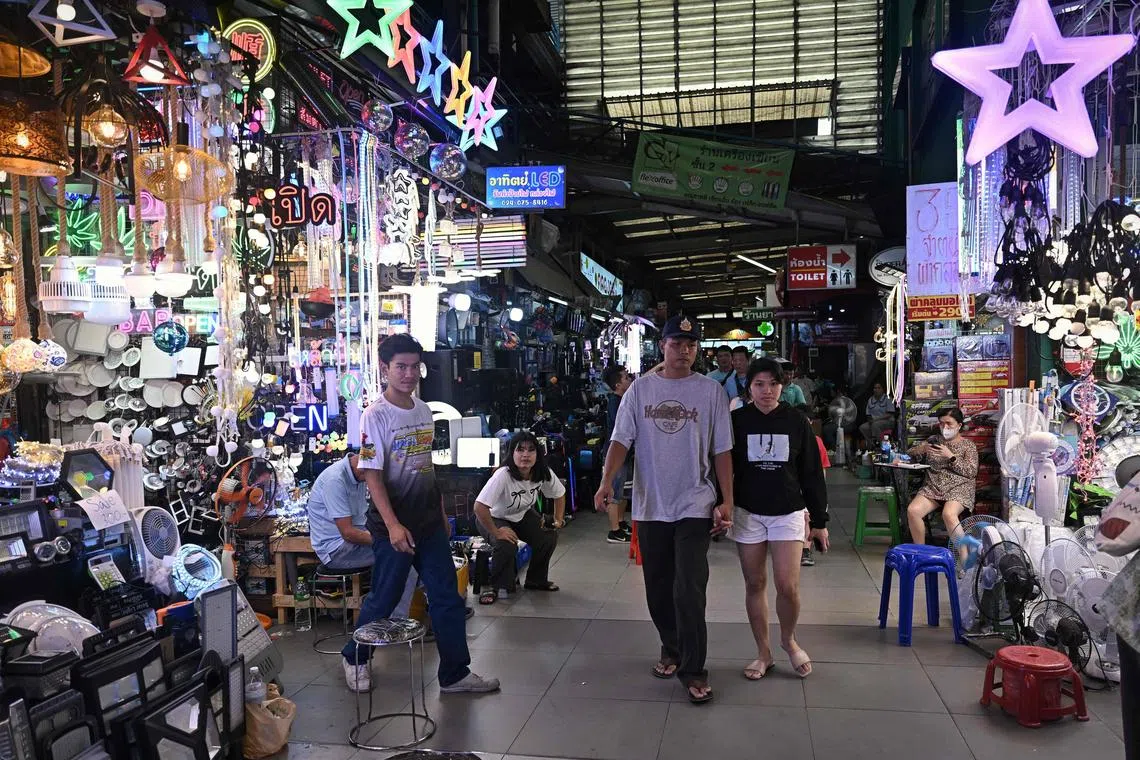Thai Cabinet approves $5.66b cash handout to spur economy
Sign up now: Get insights on Asia's fast-moving developments

The stimulus is the centrepiece of new Prime Minister Paetongtarn Shinawatra’s efforts to revive the economy.
PHOTO: AFP
Follow topic:
BANGKOK – Thailand’s Cabinet approved a cash handout plan totalling 145.6 billion baht (S$5.66 billion) that will benefit millions of poor people and help stimulate South-east Asia’s second-largest economy.
The government will start transferring 10,000 baht each to an estimated 14.6 million beneficiaries from Sept 25, Finance Minister Pichai Chunhavajira told a briefing after a Cabinet meeting in Bangkok on Sept 17.
The beneficiaries include 12.4 million state welfare cardholders and 2.15 million people with disabilities, he said.
The stimulus is the centrepiece of new Prime Minister Paetongtarn Shinawatra’s efforts to revive an economy
The payout will lift growth by 35 basis points in 2024, according to an official statement.
The cash dole pales in comparison to the promise to extend the benefit to about 45 million adult Thais through a so-called digital wallet programme by Ms Paetongtarn’s predecessor Srettha Thavisin, who was ousted in August by a court for an ethical violation
The new leader has chosen to prioritise the poorest sections of society first, while delaying the benefit to other eligible beneficiaries until sometime in 2025.
The main election pledge of the ruling Pheu Thai party, the digital wallet was dogged by controversies over the government’s shifting stance on how to finance it.
After initially proposing to cover about 55 million Thais and financing it through the state budget, Mr Srettha decided to exclude affluent Thais and fund it through a one-off borrowing.
But potential legal challenges and warnings from the nation’s anti-graft agency prompted the government to rework the funding options.
Ms Paetongtarn, who took office earlier in September
The funding for the handout will come from the 122 billion baht supplementary budget and part of the annual budget for the fiscal year ending in September, Mr Pichai said. A second phase to cover those registered for the digital wallet but not entitled to the payout in September may be considered later, Mr Pichai added, without setting a timeframe.
The smaller disbursements have reduced concerns about the cost to the economy, which expanded 2.3 per cent in the second quarter from a year earlier.
Ms Paetongtarn will chair a new committee to oversee initiatives to stimulate the economy, according to Deputy Finance Minister Julapun Amornvivat. BLOOMBERG

